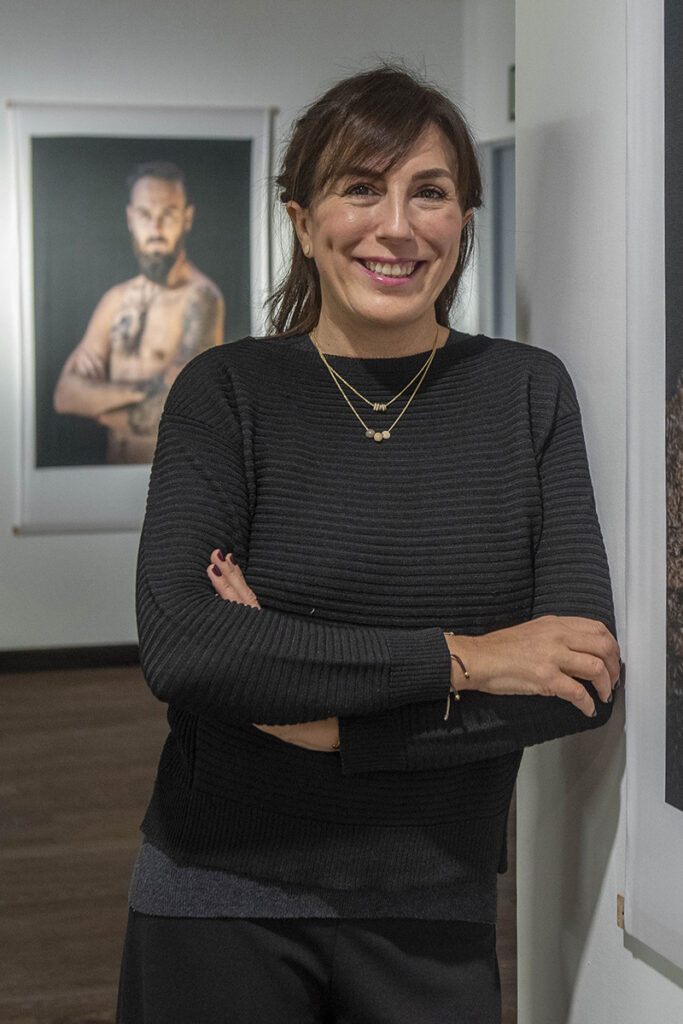Main Menu
- EnvironmentHealth
Main Menu
- EnvironmentHealth
Ana Palacios is a visual journalist focused on Human Rights, Environment and Animal Rights issues.
In 2024, she has been selected by Canon Europe as a mentor for its Student Development Programme and gives lectures on humanitarian photography for the brand in educational centers.
She has been awarded the Emergency Fund for Journalists grant from the National Geographic Society and the SOS Culture grant from VEGAP. She has been awarded the f/DKV Fotografía Con Causa Prize, selected for the New York Times Portfolio Review and nominated for the Leica Oskar Barnack Award in 2021 and 2022.
Ana is a contributor to National Geographic, The Guardian Weekend Magazine, CNN, El País Semanal, Die Zeit, 6 Mois, etc. She had solo exhibits in venues such as Círculo de Bellas Artes in Madrid (Spain), the French Alliance in Dar Es Salaam (Tanzania) or the Casa de la Donne in Rome (Italy).
She is a regular lecturer at the La Fábrica-PhotoESPAÑA Master of Photography and at the EFTI School of Film and Photography in Madrid.
She graduated in Journalism in University of Navarre (Spain), followed by film and photography studies in UCLA, Los Angeles (USA), where she lived for several years. She worked as a journalist for the newsroom at Antena 3 Televisión, she has run communications departments, and for 17 years she has been working as a film production coordinator, particularly on international co-productions. She has worked with directors such as Ridley Scott, Milos Forman, Tony Kaye, Michael Radford, Jim Jarmusch and Roman Polanski.
Since 2010, she produces documentary photography, related to Human Rights, environment and Animal Rights, mainly in Africa, but also in Asia and South America.
Her photographs raise awareness of childhood and women’s issues for various NGOs, including Manos Unidas, Africa Directo and UNICEF. She photographs the world’s broken corners: orphanages, asylums, hospitals, psychiatric units, ghettoes and the like. Her intention is to make vulnerable communities visible with a sense of optimism and hope. She has lived alongside homeless women in India, lepers in China, albinos in Tanzania, tribes in Ethiopia, pygmies in Burundi and children at risk of social exclusion in Uganda, who have become the subjects of some of her work.
Then… the Pandemic arrived! And since then her stories are focused locally, mainly in Spain, documenting on health, environmental, and animal rights issues.
She is a contributor to outlets such as National Geographic, The Guardian Weekend Magazine, CNN, 6 Mois, Al Jazeera, Stern, Der Spiegel, New Internationalist, Daily Mail, Terra Mater, Days Japan, XL Semanal, La Vanguardia Magazine, El País Semanal, among others.
In 2015 published her first book “Art in Movement” about art as a tool for social change in Uganda. In 2016, she published her second book “Albino” about the skin cancer of people with albinism in Tanzania. In 2018 she is releasing her third book “Slave children: The Back Door” about the reinsertion of slave children in West Africa. She has also directed a film documentary on this last topic, available on Filmin.
Currently based in Madrid and Mallorca (Spain).

Go to “Public speaker, jury member & mentoring” for more info.
Ana Palacios’ photographies are in both private and public collections such as:
Production Coordinator for Film and Television for 17 years. (1998 – 2014).
Feature Films: Exodus, Kingdom of Heaven, Asterix at the Olympic Games, The Liberator, Intruders, The Inbetweeners, The Limits of Control, La Mula, Tirante el Blanco, Queen of Swords, Goya’s Ghosts and The Dictator, among others.
She has worked for production companies such as the BBC, Fox, Paramount, etc. and with directors Ridley Scott, Michael Radford, Jim Jarmusch, Tony Kaye, Milos Forman and Roman Polanski among others.
BA in Journalism, from the University of Navarre, Pamplona. (1990 – 1995).
Master Certificate Program in Film & TV, in UCLA. Los Angeles, USA. (1996 – 1997).
Various courses of film production, photojournalism, digital photography, developing and printing in black and white, photography touching-up, etc. at the University of California, San Francisco, University of California, Los Angeles and University of Navarre.